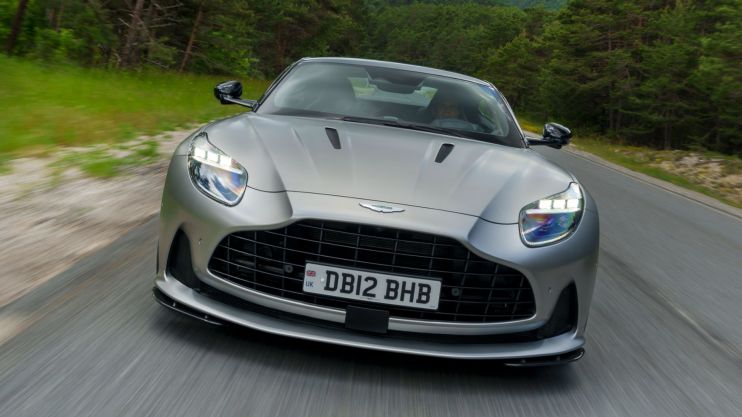Aston Martin’s revival hits the skids – but will investors lose faith?

A production snarl-up with Aston Martin’s highly-anticipated DB12 model sent the marque’s shares plummeting to the bottom of the FTSE 250 today.
It’s a big disappointment for investors who had high hopes for today’s third quarter results, following the roll-out of the British carmaker’s blistering new model earlier this year.
Aston Martin said DB12 delivery delays would hit annual volumes, prompting shares to spiral down nearly 15 per cent in early trading.
The share price slump slammed the brakes on a remarkable year for the luxury sportscar maker, which looked to have put years of subpar performance and debt struggles in the rear-view mirror.
Despite hitting the bottom today, Aston Martin remains the FTSE 250’s fastest riser this year.
But shareholders will now be questioning whether that success will last.
Fortunately, there were some silver linings. This morning’s results showed the company had moved one step closer to its goal of turning a profit, after years of lossmaking since its 2018 IPO.
The marque nearly halved its losses and saw bumper growth in its preferred profit measure – adjusted earnings before before interest, tax, depreceiation and amortisation – which more than doubled to £50.5m
Despite the DB12 disaster, demand is up for its other models, with the Valkyrie supercar performing particularly well. In fact, demand across the entire luxury sector is holding firm, with rivals Porsche and Ferrari both enjoying strong years.
Sophie Lund-Yates, lead equity analyst at Hargreaves Lansdown, said: “Aston Martin’s full year plans haven’t been driven off course, despite a blip in production of new models.
“Higher average selling prices have come to the rescue once more, with an Aston Martin now setting customers back a whopping £234,000 on average.”
Yet Lund-Yates warned there were “limits” to the market’s patience and generosity. “Having come cap-in-hand to investors in the summer, it’s crucial that Aston Martin comes good on its plans to fire up its profit and cash flow engines.”
Any long-term resurgence hinges on whether Aston Martin can finally get to grips with its electrification push, with its first battery car coming to market in 2025.
Backed by renewed investment from its billionaire chair Lawrence Stroll and the Hangzhou-based automaker Geely, it has definitely stepped up a gear this year.
A £182m deal with the US startup Lucid to make high performance EVs sent shares soaring in June. But supercar brands are yet to overcome the significant cost hurdles surrounding such high-performance electric vehicles.
“While a lot’s being thrown at the electrification of Aston Martin, there’s no proof-proving pudding to be had just yet. That increases risk and interrupts the market being able to become too excited just yet,” Lund-Yates said.